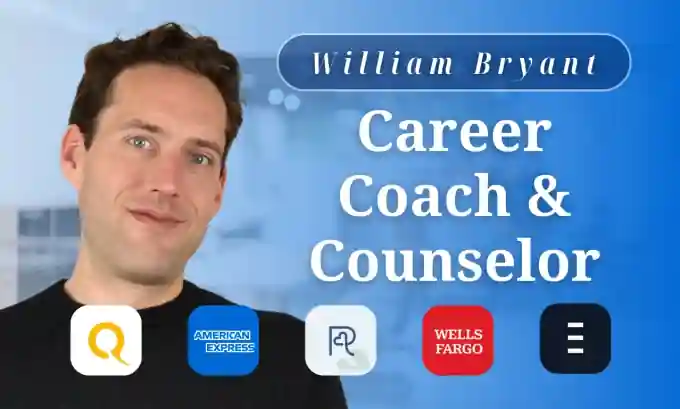Career Counseling: Strategies for Personal and Professional Growth
Career counseling is a helpful service for starting, changing, or improving careers. It involves talking with a counselor and doing activities to understand your strengths and make good career choices. It's a process that helps you figure out your interests, abilities, values, and personality. This process starts from when you're born and continues throughout your life because as you grow and things change, you'll have to make new decisions about your career and life.
 |
The role of career counseling in our lives is to assist individuals in starting, transitioning, or progressing in their careers. Through personalized sessions and various tools such as assessments and activities, career counseling helps individuals identify and leverage their strengths to make informed career decisions and achieve their professional goals.
The purpose of Career Counseling is two-pronged: to guide individuals in making current career decisions and to equip them with the knowledge and skills necessary for navigating future career and life choices effectively.
💻 Table of Contents:
Top Five Techniques Of Career Counselors:
Understanding the key steps of career counseling can empower you to guide job seekers effectively. Career counselors play a vital role in assisting individuals through various stages of their career journey.
From aiding high school and college graduates in finding their initial job placements to supporting seasoned professionals in transitioning to new careers, career counselors utilize a range of techniques to facilitate these transitions. Here are five top methods employed by career counselors:
Initiation:
This initial step involves helping clients recognize the need for career guidance and initiating the counseling process. Career counselors establish rapport, gather relevant information about clients' backgrounds and goals, and set the stage for further exploration.
Exploration:
During this phase, counselors assist clients in exploring their interests, skills, values, and personality traits. Through assessments, discussions, and exercises, clients gain insights into potential career paths that align with their strengths and aspirations.
Decision-making:
In this step, counselors help clients evaluate various career options based on their exploration findings. Clients weigh the pros and cons of different paths, consider factors like job market trends and personal preferences, and ultimately make informed decisions about their career goals.
Preparation:
Once clients have made decisions about their career paths, counselors support them in developing action plans to pursue their chosen goals. This may involve acquiring necessary skills, further education or training, networking, and preparing job application materials.
Implementation:
The final step involves supporting clients as they take tangible steps towards their career objectives. Career counselors provide ongoing guidance, encouragement, and resources to help clients navigate challenges, seize opportunities, and successfully transition into their desired roles.
 |
By employing these techniques, career counselors empower individuals to navigate the complexities of the job market, make informed career decisions, and achieve their professional aspirations.
Essential Insights from Career Counselors:
Career counseling works best when the counselor and client connect well. While some counselors use tests, the best ones have advanced training in mental health. They dig deep to understand their clients' worries, interests, fears, and desires. This deep understanding helps them offer better support and guidance to their clients.
Building a Strong Relationship:
This part talks about how important it is for career counselors to connect well with their clients, similar to other types of counseling. It compares traditional counselors who use tests with those who have advanced training in mental health. The best counselors go deeper into understanding their clients' worries, interests, fears, and desires, which helps them provide better support and guidance.
Setting Clear Goals:
Here, it explains how top career counselors work with clients to set specific goals. They guide conversations toward these goals by using different methods, like imagining the perfect job or considering long-term dreams. These discussions help clients clarify what they want to achieve in their careers.
Encouraging Self-Exploration:
This part highlights the importance of giving clients space to think about their career and life choices. It says that top career counselors don't just rely on tests; they encourage clients to reflect on their experiences and goals. Through careful guidance, counselors help clients discover more about themselves, which helps them make better career decisions.
Knowing the Job Market:
This section talks about how essential it is for counselors to understand what's happening in the job market. They need to know about things like automation and global competition. They also help clients develop skills and attitudes to succeed in today's job market, like being good with technology and being adaptable.
You May Also Like:
- From Canvas to Screen: The Modernization of Oil Painting
- Elevate Your Sound: EDM Remixes Masterclass with Hi5music
Connecting Life and Career Goals:
Lastly, it discusses how top career counselors take a holistic approach. They help clients find careers that match their life themes, not just their skills. By considering everything about the client, counselors aim to ensure clients find long-term satisfaction and success in their careers.
A Summary of Career Counseling Benefits:
Career counseling serves as a valuable resource for individuals navigating the complexities of career decisions and transitions. Graduates facing uncertainty after college, professionals contemplating further education, or anyone overwhelmed by career options can benefit from career counseling. Through exploration of interests, values, and skills, individuals can gain clarity and direction in their career pursuits.
Moreover, career counseling facilitates understanding the relationship between education and career goals, enabling informed decision-making. By developing strategies, navigating the job market, managing transitions, and overcoming obstacles, career counseling empowers individuals to build satisfying and successful careers.
Additionally, career counselors help identify and address barriers to success while uncovering hidden strengths and talents. Through this process, individuals gain the confidence and resilience needed to achieve their career aspirations.
Types of Counselling Career Paths:
There are several types of Counselling Career Paths and among them a few are mostly important for an enriched society and personal developement field like: School or Institutional counsellor, Youth counsellor, Addiction counsellor, Clinical counsellor & Political Counsellor.
It is notable that in most of the countries around the world do not give importance on it. And the behind the reason is completely political that is one of the reason of insecure society and lack of democracy. Let's a have basic importance on this very topics for social security.
School Counselors:
School counselors play a crucial role in supporting students' academic, social, and emotional development. They assist students in addressing psychosocial and behavioral challenges, offering a safe space to discuss problems and develop coping strategies. Additionally, counselors collaborate with teachers, parents, and administrators to create a supportive school environment and promote student wellbeing.
In their multifaceted role, school counselors act as advisors, advocates, mediators, and educators, among other roles. They help students identify their abilities, navigate conflicts, develop social skills, and plan for academic and career success. Through individual counseling, group sessions, and school-wide interventions, counselors strive to improve students' overall academic performance and emotional well-being.
Youth Counselors:
Youth counselors offer support and guidance to minors facing personal challenges, aiming to help them overcome obstacles and thrive. They work across various sectors such as education, religion, and social services, conducting client interviews, providing counseling sessions, and coordinating additional support services. Key responsibilities include organizing activities, interacting with professionals, and maintaining accurate records to ensure the well-being of the youth they serve.
Addiction Counselors:
Addiction counselors support individuals dealing with addiction to substances like drugs, alcohol, and gambling. They facilitate recovery through interventions, therapy groups, and tailored treatment plans. Following up post-treatment, they assess progress and offer ongoing support. Additionally, addiction counselors engage in public education, prevention efforts, and collaborate with various organizations to develop health programs for communities.
Clinical Counselors:
Clinical counselors assist individuals in managing emotional and psychological challenges, guiding them to develop healthier coping mechanisms and behaviors. They create a safe space for clients to address and resolve their issues, often conducting progress groups on various topics like substance abuse and mental health.
Additionally, clinical counselors provide education on topics such as nutrition and healthcare for specific populations like pregnant individuals.
Empowering Citizens: The Impact of Political Counselors
Political counselors play a crucial role in fostering a secured and democratic society by promoting transparency, accountability, and civic engagement. Through their guidance and advocacy, they help cultivate a culture of democratic values and principles, which are essential for the progress and stability of a civilized society.
 |
By challenging autocracy and family-based political structures, political counselors contribute to the political revolution necessary for sustaining continuous democratic governance worldwide. Their efforts empower citizens to actively participate in governance processes, ensuring that the voice of the people shapes the direction of their nation's development.
Additionally, political counselors serve as political strategists, ensuring that every political party has grassroots-level counselors to execute their vision effectively, thus paving the way for a better future for the next generation. Besides, political counselors inspire more people to increase their bold and fair political involvement, aiming to secure their society from political militarization and ensure a peaceful democratic transition.
Empowering Future Generations:
In a rapidly changing world, our counselor experts are here to guide and support the next generation, ensuring they grow strong physically, mentally, and financially. With their help, young individuals can develop resilience, overcome challenges, and navigate complexities, preparing them to protect themselves from social insecurity. Let our counselors empower your beloved generations to thrive and create a secure future for themselves.
In conclusion, career counseling serves as a vital resource for individuals seeking clarity and direction in their professional pursuits. Through exploration, guidance, and support, individuals can make informed decisions, overcome obstacles, and achieve their career aspirations.
The multifaceted roles of counselors, from school to political settings, underscore the importance of their expertise in fostering individual growth and societal progress. Let us recognize and value the contributions of counselors in empowering individuals and shaping a secure, democratic, and prosperous future for generations to come.

0 Comments